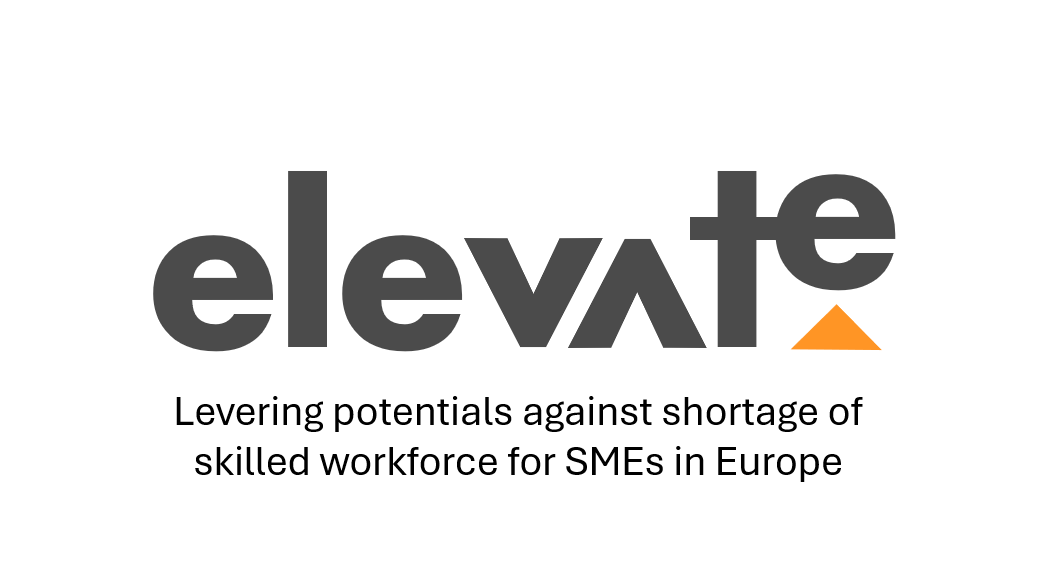Background of the ELEVATE Project
The Motivation
According to the European Commission, approximately 87% of European employers have difficulty filling vacancies for skilled jobs, with more than half of the vacancies being in STEM fields.
Moreover, the shortage of skilled workers is expected to become even more acute in the coming years, with an estimated shortage of up to 10 million skilled workers in Europe by 2030.
The shortage of skilled workers is already having an impact on the economic development of Europe. It is making it harder for companies to innovate and grow, as well as leading to higher labour costs, lower productivity, and reduced competitiveness. The European Commission estimates that the lack of skilled workers could result in a loss of up to 1.5% of GDP by 2025, with the potential to reach 4% by 2030.
Furthermore, the shortage of skilled workers is exacerbating demographic challenges in many European countries, including an ageing population and declining birth rates. In turn, this is putting additional pressure on social welfare systems, healthcare, and other public services, as there are fewer people of working age to support an increasing number of retirees.

All these are very dangerous signs for the European economy, which is anyway suffering from inflation, energy crisis and other economic challenges in a global competitive world. In first place this is for sure a political question where governments and the whole European Union have an important role requiring political decision making. We also need to consider that the shortage of skilled workforce does not hit all companies the same way.
Larger companies and especially industrial companies, despite the fact that they have a huge need of staff, find it easier to attract workers and staff as they are able to offer e.g. child care facilities, flexible working hours, job rotation, part time contracts, home office solutions, flexible retirement schemes etc. which increase the attraction as an employer.
For smaller companies (which are respfor about 99% of Europe’s economy) it is much more difficult as so far, all these attractions and benefits could not be provided. What remains for these companies is to wait for political decisions, public investments and support which in front of the time needed for such decisions and investments and the urgency of the problem behind is probably not the best and for sure not the only way.
For this reason, we find it most urgent to provide practical and pragmatic solutions for SMEs in Europe which take into consideration the dedicated potentials of a single SME in its business environment, identify these potentials and lever them for a company specific problem solution.
The Approach
Research as well as ongoing discussions show very clearly that the anchors for solving the problem of shortage of skilled workforce have to aim at the untapped potential (silent reserve) on four distinct levels or pillars which are in the direct influence of a single company:
1. Full-Time
Employment for Women

2. Workers Close
to the Retirement Age

3. Diversity
and Migration

4. Upskilling the
Low- and Unskilled

To address the shortage of skilled workers in Europe, four key approaches can be taken. First, women - especially those with childcare responsibilities - need better support to enter the labour market. This includes creating working conditions that meet their needs and allow them to work full time instead of only part time. Second, older skilled workers nearing retirement should be encouraged to stay in the workforce for a longer time. This requires flexible conditions that match their health, lifestyle, and retirement preferences. Third, companies should actively manage diversity by hiring skilled workers with a migration background. It is important to create inclusive work environments where also individuals with limited language skills can contribute effectively. Finally, unskilled or low-skilled workers must be given opportunities for upskilling to meet current labour market demands. Together, these measures can help alleviate the skilled labour shortage. This needs to be focused on a single company/organisation.
The Objectives
With the ELEVATE project we are aiming at achieving 3 core objectives:
1. Implementation of a short investigative research about the concrete needs and especially potentials of SMEs in the partner countries concerning tackling the shortage of skilled workforce, ideas and innovative plans on the four levels identified (women, older workers, migration, upskilling).
2. Development of a digital online potential scanner for companies to help to identify/evaluate the current situation and potentials available for increasing the number of skilled workforce in a short and medium perspective on the 4 identified levers.
3. Developing knowledge, competences and experiences about identification of potentials in a company, the deduction of steps and concrete innovative actions, strategic planning and monitoring of the implementation process.
With these three core objectives we are offering an innovative and new approach for companies to be direct and immediate part of the solution of the problem of shortage of skilled workforce by developing open and flexible (and individual) pathways and opportunities for learning and training within a corporate training environment, allowing companies to develop their offers for women in the organisation as well as older workers, migrants and low skilled working staff. With this offer their development, integration and inclusion on a direct company / organisation level is fostered as well as diversity is seen and perceived as a clear potential for tackling the shortage of skilled workforce.
The Target Groups
The ELEVATE project and its results are designed to address the following target groups:
- company owners of SMEs in Europe;
- managers of smaller organisations (especially also NGOs) in Europe;
- HR professionals in SMEs in Europe or other staff concerned with HR issues in companies;
- shop stewards;
- line managers, fore workers and department heads in SMEs and smaller organisations in Europe;
- all staff in companies and organisations who are concerned with the consequences of the shortage of skilled workforce;
- social partner representatives;
- political decision makers as well as VET policy makers.
The Proposed Solution
The project partners are building on their experiences, also within the ELEVATE project, for addressing the identified needs. For this reason, the direct involvement of representatives of companies, HR staff, VET professionals but also labour market experts etc. are crucial for its success.
This means that in the first step during the needs and potential analysis, the direct and broad involvement of the target group (company representatives, company owners, HR staff and professionals, line managers, social partners, VET professionals, labour market experts) is the key for a correct definition of needs and potentials which - in a second step - forms the basis for the development of the potential scanner and all project results, which will also undergo a permanent reflection and feedback loop with the target group for achieving highest relevance and impact. Through this broad, open, and direct involvement of the target group in front of an urgent problem background of shortage of skilled workforce, we will be able to provide an innovative, target group oriented and relevant solution within the ELEVATE project.
Therefore, the ELEVATE project works on these three core results:



